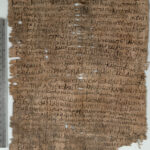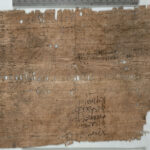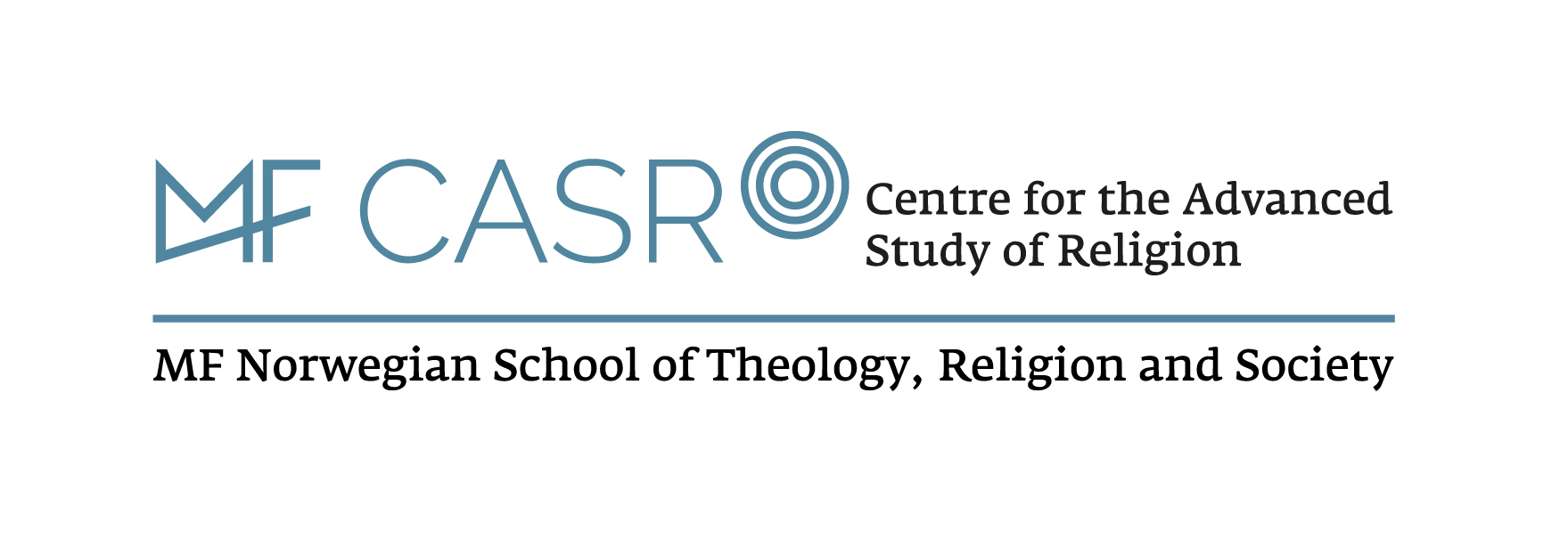| Artefact ID | 1209 |
| TM ID | TM 33603 |
| Findspot (DEChriM ID) | 28 (al-Bahnasā) | Class | Textual |
| Material | Papyrus |
| Writing medium | Sheet/roll |
| Text content | Documentary |
| Language | Greek |
| Description | P.Oxy. LVI 3862: Letter from Philoxenus Almost complete sheet of papyrus (although not in very good condition) preserving a long letter from Philexenos to his family, acknowledging goods and a letter from them and reporting that all is well with him. The ed. notes that the letter is remarkable for the exuberance of its pious language, including an allusion to I Peter 1.3 (l. 12) and a list of five saints (Sts John, Euphemia, Menas, Peter, Julianus) to be invoked (l. 26-28). It is also noteworthy that among the long list of people he greets, he mentions the nun (monache) Athonis. The handwriting is a large and unpractised capital running along the fibres. At the top of the letter, in the middle of the 1st line is the cryptogram ΧΜΓ followed by a cross (?) and the isopsephism ϙθ (= 99 = amen). Traditional opening and closing formulas "in Lord god" (with nomina sacra) of 4th-5th c. The scribe wrote the final greetings at the foot of the recto, but then added three lines of further salutations on the back, across the fibres. He seems to have begun and then abandoned writing those upwards near the middle of the back (l. 34). The address is written along the fibres, perpendicular to the final greetings, with a staurogram in the middle of it. Upside down in comparison with the address were written a list of 5 names under another ΧΜΓ cryptogram by a hand much more practised. The ed. considers this as a memorandum of some sorts, without direct connection with the letter. |
| Selection criteria | Mention of Christian individuals/communities, Christian terms/formulas/concepts, Christian onomastics, Christian symbols/gestures/isopsephy, Nomina sacra, Biblical quote or paraphrase |
| Date from | 400 |
| Date to | 499 |
| Dating criteria | Dated to later 4 or 5th c. in ed. pr. A. Papaconstantinou 2001: 149 assigns it to 5th c. |
| Absolute/relative date | Relative date |
| Archaeological context | |
| Accession number | Oxford, Sackler Library, Papyrology Rooms P.Oxy. inv. 3862 |
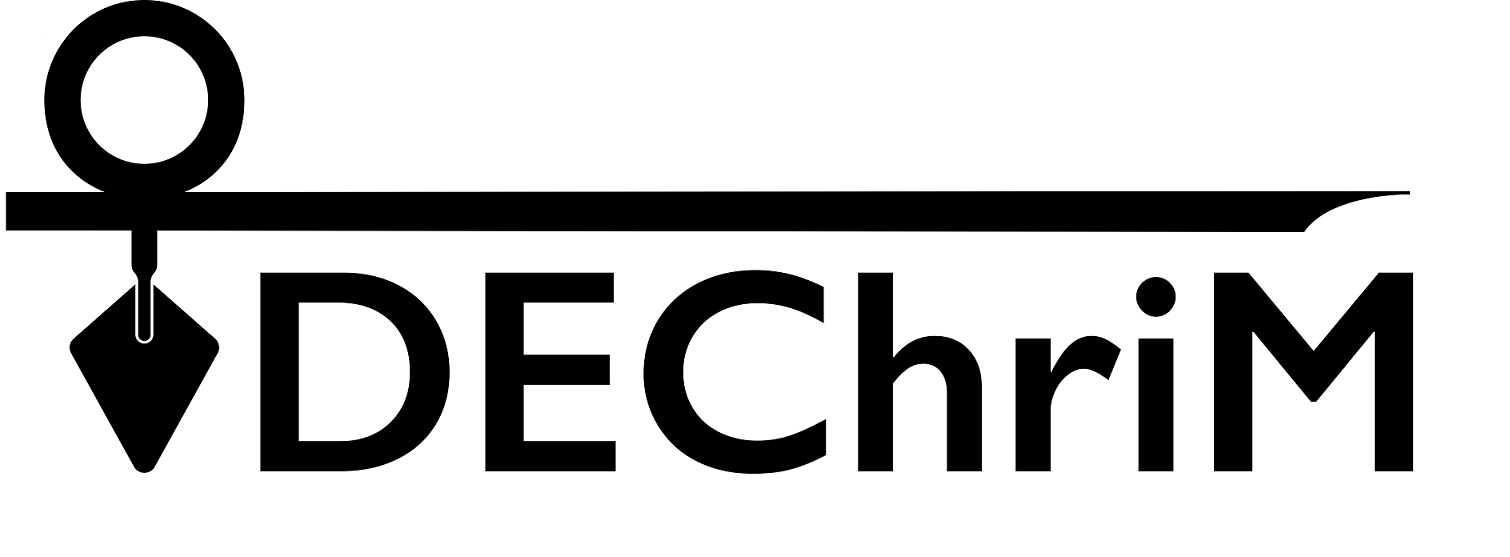

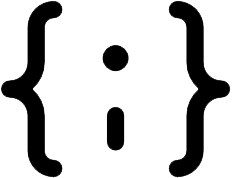 Json data
Json data